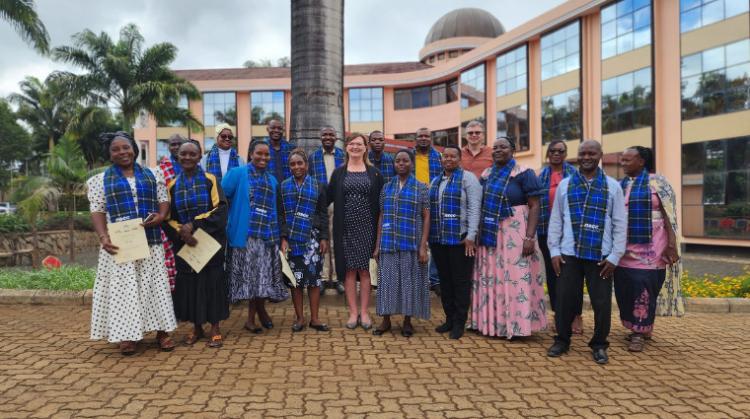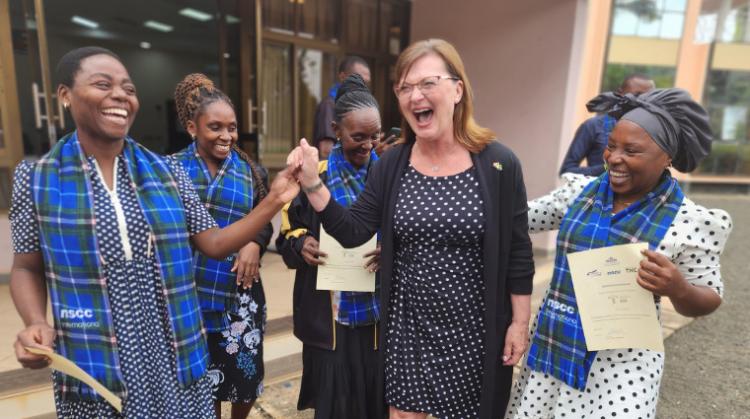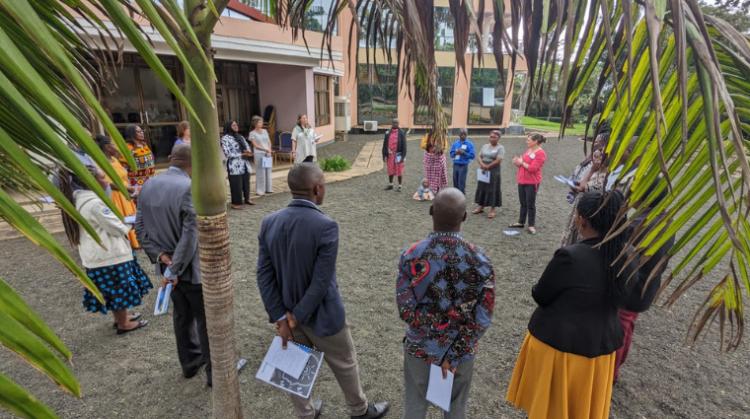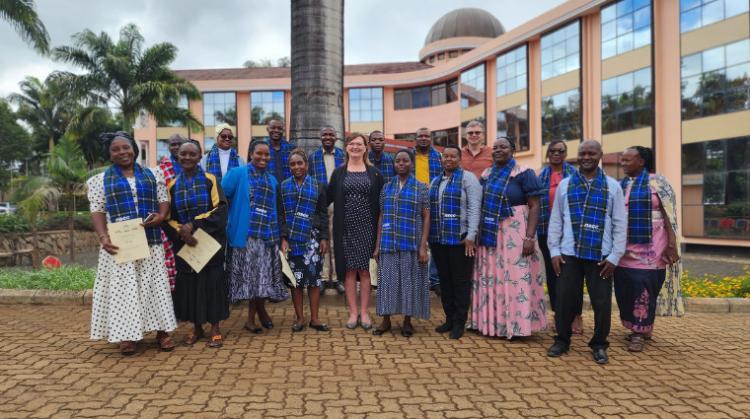
Image Credit: Saskatchewan Polytechnic
"The Empowerment through Skills Project is all about empowering women and youth to get into the workforce," explained Sharon Hopkins acting academic chair of Flexible Learning at Sask Polytech. Hopkins recently returned from a two-week trip to East Africa this May where she was an instructor with International Projects. With a background in short-term courses development and essential skills training, Hopkins worked with counterparts from North Island College in British Columbia and Nova Scotia Community College to train 16 instructors from partner colleges in Tanzania. The group taught a specialized curriculum to the faculty who will in turn lead classes of local students in the future. The project has been designed to strengthen alternative pathways to education, employment, self-employment and entrepreneurship for women and adolescent girls.
The Canadian team was part of a larger project under the Canadian and Institutes Canada (CICan) program funded by the Government of Canada through Global Affairs Canada. The project was made possible through a partnership with Tanzania's Ministry of Education, Science and Technology through the Department of Technical and Vocational Training.
"Student-centered training can be hard to understand. Showing faculty how they are learning so they can relate to the students is eye-opening," says Hopkins. "The instructors have a better understanding as they sit in the student chair and work through the training themselves." Training was provided to the instructors of Kilwa Masoco Folk Development College, Mto Wa Mbu Folk Development College and local community-based organizations. The sessions focused on active learning strategies and how these can be incorporated into lesson plans to engage and enhance adult learning.
In addition to the formal training, the sessions also provided an opportunity for the Tanzania instructors to build a local network, something that wasn't in place earlier.
"Now they have a support system within their own country," says Hopkins. "They can learn from their peers and assist one another. Peer support is a valuable asset."
"These global projects are an opportunity to build our brand and develop partnership opportunities within Canada," she says. "These projects elevate the reputation of Sask Polytech which is seen as a global leader in curriculum development and training."
Hopkins has a successful track record of international training, having represented Sask Polytech on four separate occasions in Colombia and this, her second trip to Tanzania. She has first-hand knowledge and experience of how the Canadian curriculum can be put into practice.
"It's a very rewarding experience on many levels," she says. "I have the opportunity to share my knowledge with others and to learn from them in return. There is an ongoing exchange of information that is very valuable."
Angela Wojcichowsky, director of International Projects, says, "Participating in international development projects, like the Empowerment through Skills Project in Tanzania, not only enriches our global perspective but also enhances our ability to create sustainable change. By sharing our knowledge, skills, and resources, we can empower individuals and communities to reach their full potential and build a better future for all. Sask Polytech recognizes the importance of investing in international development projects and is committed to fostering a culture of global citizenship and collaboration."



Image Credit: Saskatchewan Polytechnic
Learn more about Sask Polytech international projects.
Saskatchewan Polytechnic is signatory to the SDG Accord. Sustainable Development Goal alignment is one of the ways Sask Polytech is leading the rise of polytechnic education.













